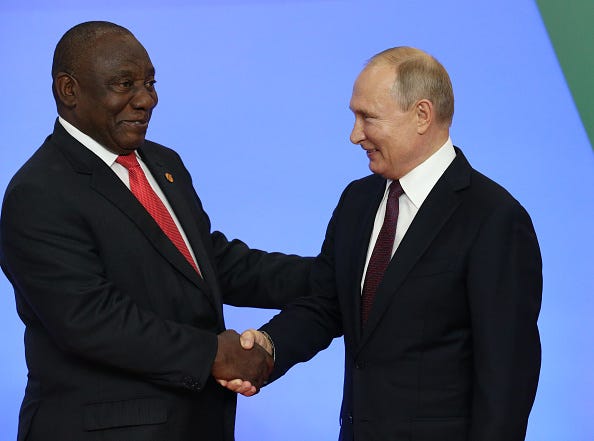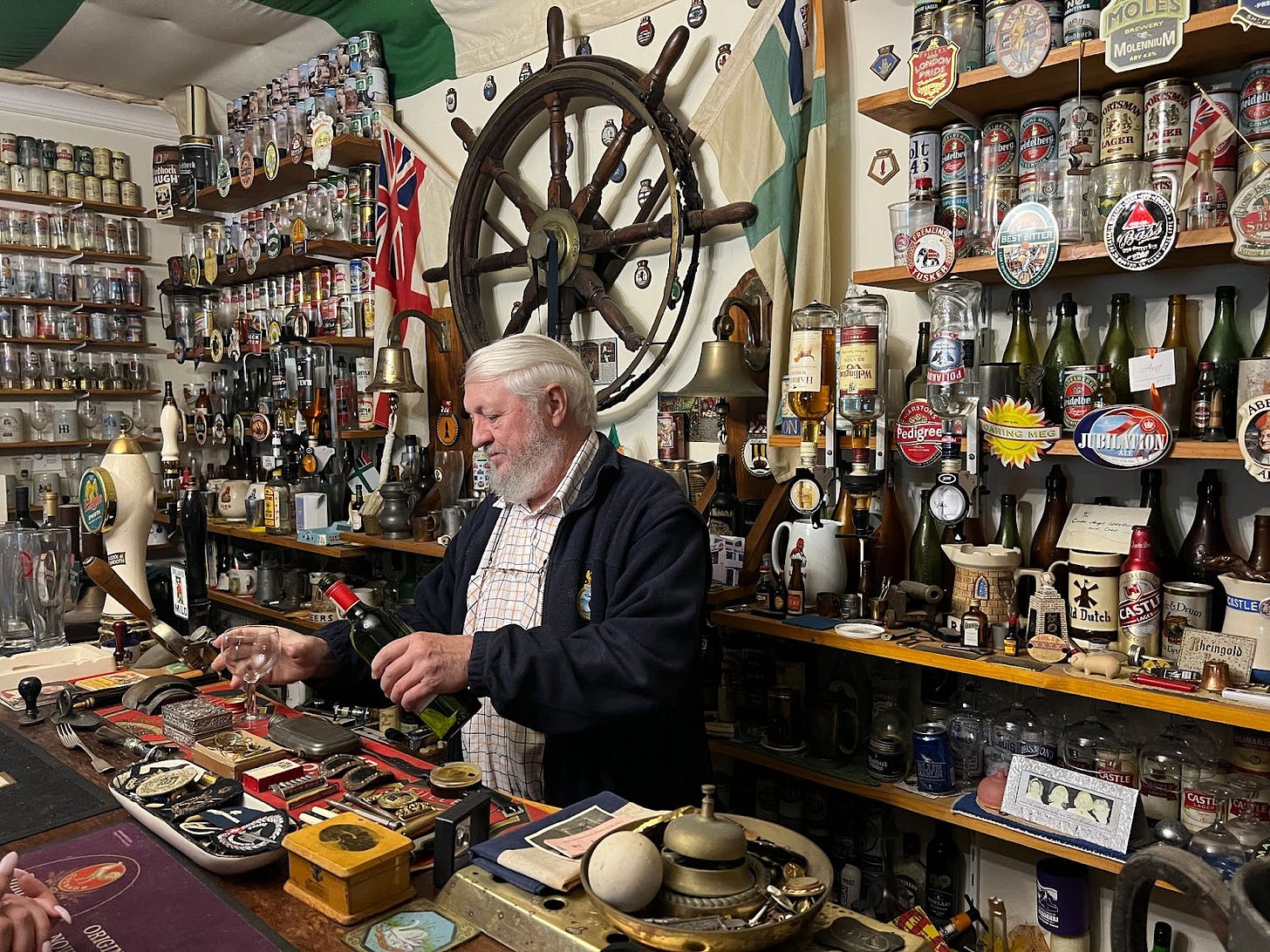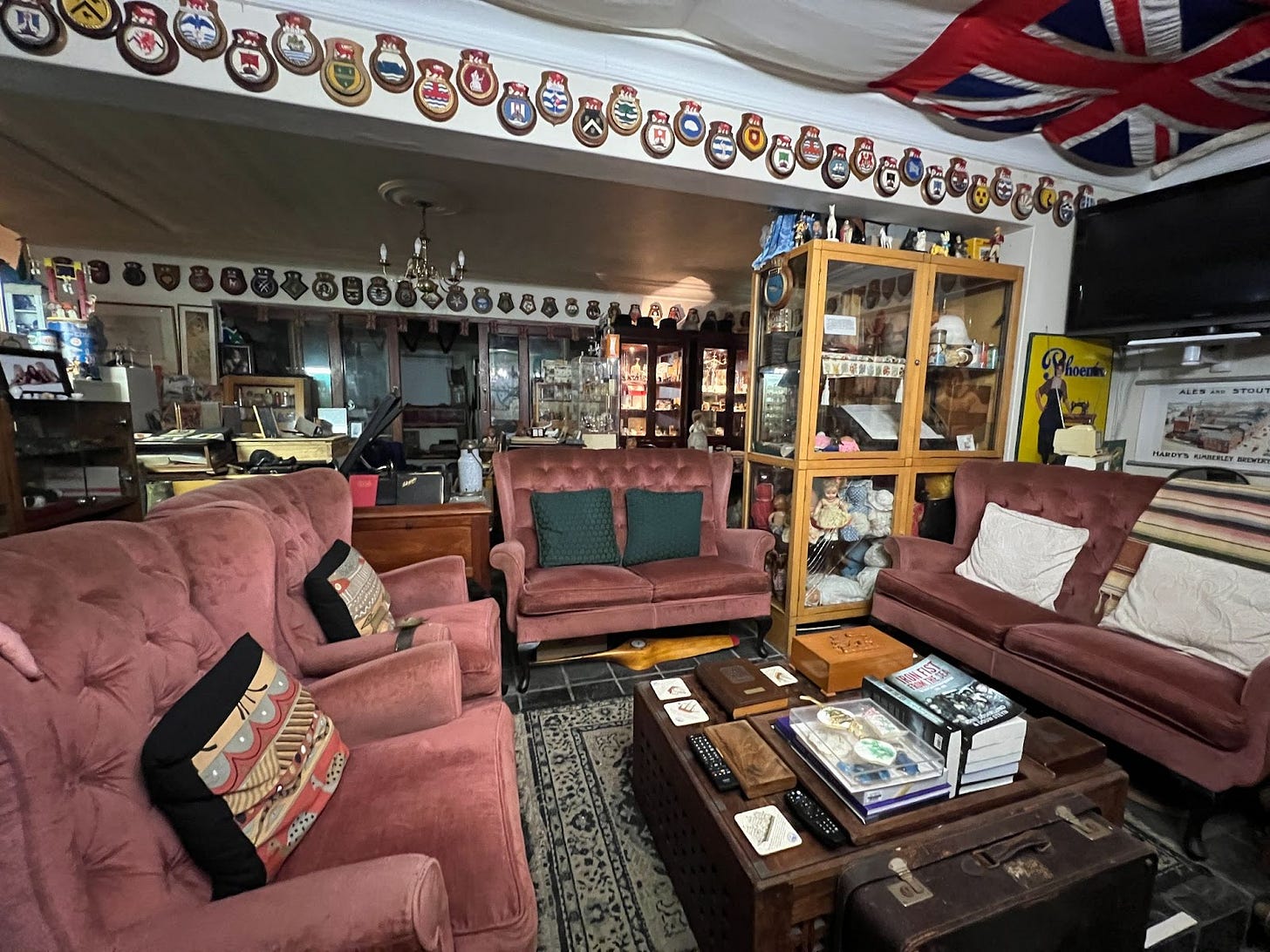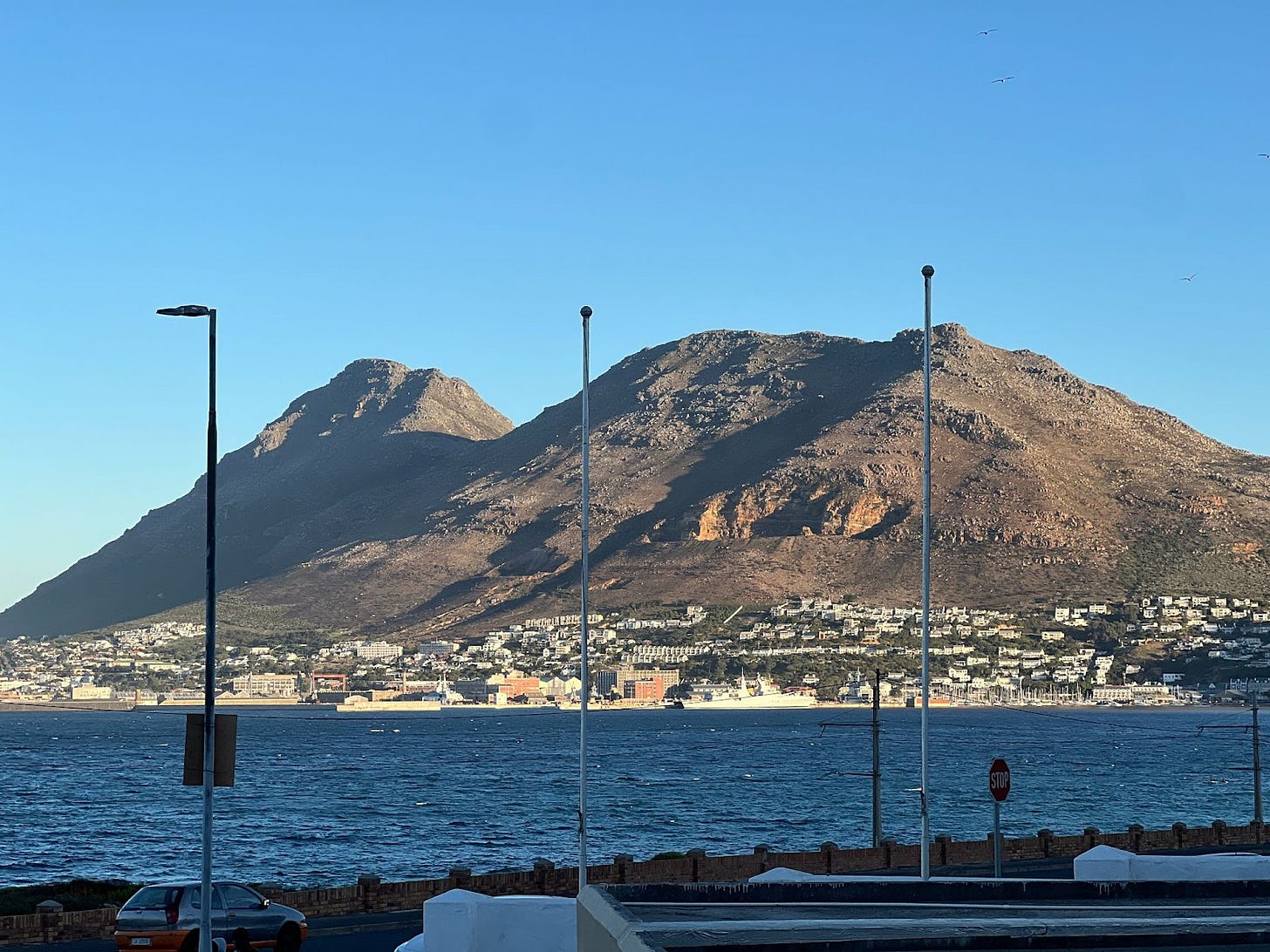Why Africa Doesn’t Back Ukraine
Reporting from South Africa during its elections, we look at why countries on the continent have generally refrained from supporting Ukraine – and in some cases actually appear pro-Russia.
Editor’s Note: Many days this week, electricity has only been on in our Kyiv offices/apartments for three hours — if that. Help us get the Ecoflow batteries that we need to power our computers, phones and lights:
CAPE TOWN, South Africa – In December 2022, standing outside Arne Söderlund’s front door, and looking out across the harbor, you could clearly see a Russian ship.
The docking of the ‘Lady R', a vessel sanctioned by the United States, was quickly noticed by the shipspotters who watch naval vessels come in and out of these waters as a hobby.
It would normally be a weird anomaly, chattered about only by naval geeks.
But the docking turned into an international fiasco when the United States Ambassador to South Africa, Reuben Brigety, alleged that the ship had loaded on board a cargo of South African weapons, for use by Russia in the war in Ukraine.
In an instant, the episode exploded into a diplomatic incident. The docking of the Lady R illustrates South Africa’s – and the continent’s – contentious positioning on Russia’s invasion of Ukraine.

Many current African leaders, South Africa’s included, had deep ties with the Soviet Union during the late 20th Century. During their time as a revolutionary party in exile, the Soviets helped back the African National Congress, who then went on to rule South Africa for the past 30 years.
And with a new Cold War brewing between Russia and the West, some of these players are falling into historical patterns.
Arne Söderlund is not one of those leaders with Soviet-era nostalgia. He spent 47 years in the South African Navy, retiring as a rear admiral. When Russia’s full-scale invasion began, he made sure that a Ukrainian flag flew in his town’s square.
After he left the military, Söderlund set up a fascinating museum at his house in Simon’s Town, South Africa, across the bay from the country’s largest naval base.
Inside, surrounded by naval insignia, flags, crests and medals, buckles from the 1700s, and books in all sorts of languages from around the world, Söderlund waved off praise for his homegrown museum – which goes by the name ‘Den of Antiquity, Junk and Disorderly’.
“Wait until you see my submarine,” he quipped.
A gracious host, Söderlund poured a pint of beer for the foreign reporter (me) who had traveled all the way from Ukraine to learn more about the ‘Lady R.’
In the end, an official inquiry by the South African government found no evidence that South Africa had sent weapons to Russia. However, it did find that the ship had delivered weapons from Russia to South Africa that were ordered before the COVID pandemic — meaning the two had been engaged in an arms deal.
The conclusion was hardly enough to quiet the controversy among those I spoke to in South Africa. Was the inquiry impartial? And why had the U.S. ambassador cited American intelligence when he accused the country of shipping weapons to Russia, and with such confidence? (“I would bet my life” on the allegation, he said last year).
In Söderlund’s professional opinion, based on decades in the military, he doesn't think the ship received South African weapons to be used in Ukraine by the Russians.
If the South Africans loaded up "anything explosive, inflammable, things like that, they would have had a fire engine [on standby]... they would have had to have had guards," the retired admiral said, in between sips of a pint of beer. "There was definitely no indication to someone like me… that there was anything explosive or anything of particular value [loaded onto the Lady R]."
Even if South Africa had not materially supported the Russian war effort with weapons, they still purchased Russian arms. And there’s still plenty of evidence to show that Africa’s largest economy has been more pro-Russian than most Western countries would like.
For example, the South African navy took part in drills with Russia in the Indian Ocean last year – including with a Russian frigate with a large 'Z' on its smokestack. The South African government, led by the African National Congress, has mirrored Russian talking points in blaming the United States and the West for supposedly forcing Russia to invade Ukraine.
“...the US provoked the war with Russia over Ukraine, hoping to put Russia it in place… The Western imperialist dominance over Eastern Europe is being advanced… through US-led expansionist military strategies.”
-Resolution passed by South Africa’s ruling party, the ANC, at its national conference in 2023.
And as I visited Söderlund, another ship was in the harbor: the Amatola, a South African frigate preparing for a long trip to St. Petersburg later this year, to celebrate the Russian navy’s anniversary.
Given all this is happening as Ukrainians are fighting for their very national existence, it didn’t seem particularly neutral.
Many countries in Africa have asserted a neutral stance on Russia’s invasion of Ukraine. For many of these countries, the position is their way of asserting their independence from both the West *and* Russia.
If there’s a new Cold War brewing, they want to illustrate their freedom from both, by not taking sides with either.
“When we are discussing the war in Ukraine in the African context, very often it's not about Ukraine. It's about the allegiances,” said Denys Reva, a researcher at the Institute for Security Studies, based in South Africa. “The U.S. and Europe support Ukraine. And that for quite a few people is enough to make far-reaching conclusions… Because of Africa's own experience and history with European countries and the U.S., there's a lot of grievances in this relationship.”
The Russian diplomatic aim has been to take advantage of this grievance to create neutrality in Africa — to reframe the conflict as not one between Russia and Ukraine, but as a Soviet-era conflict: Russia versus the West.
And neutrality is a stance which Russia is more than fine with, because it reduces the pressure on it in international bodies like the United Nations.
“Neutrality is a win for Russia,” Reva said. “The initial expectation that Europeans will simply roll in and get the support [of Africa was] really ill-fitted.”

Apathy also plays a role in Africa’s neutrality, as the effect on the continent has waned. An initial concern for Africa was that Russia’s invasion could jeopardize its food supplies, dependent as they were on exports from Ukraine through the Black Sea.
But this has become less of a problem as Ukraine’s military has pushed the Russian fleet back and resumed exports of grain – in fact, Ukraine is now exporting nearly as much grain as before the invasion began.
With this problem being addressed, many on the continent are much more interested in the ongoing war in Gaza, as a large percentage of Africans are Muslim, second only behind Christianity. The war in Sudan has also been raging for over a year, killing an estimated 150,000 people, and displacing nine million others.
Still there may be signs of a closer realignment with Ukraine on the horizon in South Africa at least. Last week, South Africans took to the polls to vote for new national leadership amid deep concerns about crime, energy shortages and a struggling economy.
It was a seismic event: after the ballots were all counted this weekend, the ruling African National Congress, which had led South Africa since apartheid ended thirty years ago, was denied a majority for the first time, accumulating just over 40 percent of votes.
So in order to govern, the ANC will need to form a coalition – frantic negotiations are underway now.
In second place, with about 22 percent of votes, were the The Democratic Alliance, a pro-Western party whose spokesperson told The Counteroffensive would put an immediate end to military drills with Russia if they were in charge.
After the paywall: A Russian sub shows up in the Caribbean, and I take you on Cape Town’s most important Ukrainian landmarks with our guide Dzvinka Kachur.
Keep reading with a 7-day free trial
Subscribe to The Counteroffensive with Tim Mak to keep reading this post and get 7 days of free access to the full post archives.







